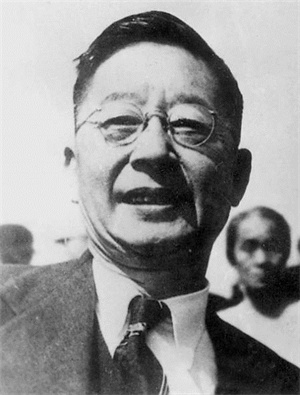– 小天天的感想 –
《英译中国现代散文选》是一套非常好的教材,是我为了准备翻硕考试而购买的,研习的时候不仅能读到中国著名作家们的作品,还能同时学习英语,将书本上的英语知识真正地理解,并学着去运用。虽然研究生考试已经结束,但是对英语的学习却不应就此止步。故我想借做公众号的机会,不仅让自己继续学习,也为有需要的同学们朋友们提供帮助。
本栏目由老舍的《狗》作为第一篇,是因为这篇散文的原文正是我翻硕考试时的中译英原题,张培基教授的翻译实在是值得我们去学习。路漫漫其修远兮,吾将上下而求索。我也会在学习的路上勇往直前。
狗
The Dog
老舍
Lao She
中国狗恐怕是世界上最可怜最难看的狗。此处之“难看”并不指狗种而言,而是与“可怜”密切相关。无论狗的模样身材如何,只要喂养得好,它便会长得肥肥胖胖的,看着顺眼。中国人穷。人且吃不饱,狗就更提不到了。因此,中国狗最难看;不是因为它长得不体面,而是因为它骨瘦如柴,终年夹着尾巴。
Of all dogs in the world, those in China are perhaps the most pitiful and ugly-looking. But it is their wretched life rather than their breed that is to blame for their ugliness. All dogs, if well-fed, will be plump and nice looking irrespective of their bodily form. In poverty-stricken China, people don’t even have enough to feed themselves, let alone dogs. Chinese dogs are ugly-looking not because they are born like that, but because they’ve been reduced to skin and bones by hunger, with tails between their legs all the year round.
生词&短语
1
wretched: of very poor quality or condition 可怜的、可悲的 adj.
2
plump: euphemisms for slightly fat 饱满的、丰满的 adj.
3
irrespective of:without considering sth or being influenced by it 不管、不顾
注释
①“中国人穷。人且吃不饱,狗就更提不到了”可按“在贫穷的中国,人们吃不饱,更别提狗了”译为 In poverty- stricken China, people don’t even have enough to feed themselves, let alone dogs,其中成语 let alone作“更别提”、“更不必说”、“遑论”解,意同 much less。
②“是因为它骨瘦如柴,终年夹着尾巴”译为 but because they’ve been reduced to skin and bones by hunger, with tails between their legs all the year round。此句也可译为 but because they’ve been reduced to skin and bones by hunger, dragging out a miserable existence with tails between their legs, 其中by hunger(由于挨饿)和 dragging out a miserable existence(悲惨地度日)是译文中的增益成份,原文虽无其词而有其意。
每逢我看见被遗弃的小野狗在街上寻找粪吃,我便要落泪。我并非是爱作伤感的人,动不动就要哭一鼻子。我看见小狗的可怜,也就是感到人民的贫穷。民富而后猫狗肥。
I always feel like crying whenever I see a homeless little dog roaming about the street in search of human excrement. It doesn’t mean that I’m a sentimental, lachrymose sort. It’s because I associate the misery of the little dog with the poverty of our people. Our cats and dogs will never get nice fat unless our people are well-off.
生词&短语
1
roam: move about aimlessly or without any destination, often in search of food or employment 流浪、漫步 v.
2
excrement: waste matter (as urine or sweat but especially feces) discharged from the body 粪便、排泄物 n.
3
lachrymose: showing sorrow 爱哭的、易悲伤的 adj.
注释
③“我并非是爱作伤感的人,动不动就要哭一鼻子”译为It doesn’t mean that I’m a sentimental, lachrymose sort.其中lachrymose的意思是“爱哭的”;sort的意思是“某一种人”,等于 sort of person。此句也可译为 It doesn’t mean that I’m a sentimental sort easily moved to tears。
④“民富而后猫狗肥”译为 Our cats and dogs will never get nice fat unless our people are well-off,其中nice是副词,修饰it,作“讨人喜欢地 (pleasingly)解,是译文中的增益成分,原文虽无其词而有其意。
中国人动不动就说:我们地大物博。那也就是说,我们不用着急呀,我们有的是东西,永远吃不完喝不尽哪!哼,请看看你们的狗吧!
We are apt to declare that ours is a big country with rich natural resources, meaning that there is no need for us to worry because we have plenty of everything to last us forever and ever. Well, why not take a look at our dogs.
生词&短语
1
forever and ever: 天长地久、直到永远
还有:狗虽那么摸不着吃,那么随便就被人踢两脚,打两棍,可是它们还照旧的替人们服务。尽管它们饿成皮包着骨,尽管它们刚被主人踹了两脚,它们还是极忠诚的去尽看门守夜的责任。狗永远不嫌主人穷。这样的动物理应得到人们的赞美,而忠诚、义气、安贫、勇敢,等等好字眼都该归之于狗。可是,我不晓得为什么中国人不分黑白的把汉奸与小人叫作走狗,倒仿佛狗是不忠诚不义气的动物。我为狗喊冤叫屈!
Dogs always remain man’s faithful servants though they are underfed and kicked and beaten without any reason. A dog continues to perform with loyal devotion the duty of guarding the door and keeping watch at night though he has been starved to a skeleton and kicked at by his master. He never minds how poor his master is. Such an animal deserves our high praise. We should attribute to them such laudatory epithets as “devotion”, “loyalty”, “content with poverty”, “courage”, etc. But I wonder why we have been undiscriminatingly calling traitors and villains “running dogs”, as if dogs were disloyal and unfaithful animals. I should voice grievances for them!
生词&短语
1
underfed: not getting adequate food 没吃饱的 adj.
2
devotion: commitment to some purpose 奉献、贡献 n.
3
laudatory: full of or giving praise 赞美的、赞赏的 adj.
4
epithet: descriptive word or phrase 绰号 n.
5
undiscriminating: not discriminating 无鉴别力的、不加区别的 adj.
6
traitor: someone who betrays his country by committing treason 叛徒、卖国贼 n.
7
villain: a wicked or evil person;someone who does evil deliberately 坏人、恶棍 n.
8
grievance: an allegation that something imposes an illegal obligation or denies some legal right or causes injustice 冤屈 n.
注释
⑤“饿成皮包着骨”译为 starved to a skeleton,和reduced to skin and bones by hunger同义。
⑥“狗永远不嫌主人穷”可译为He never minds how poor his master is或He never complains of his master being so poor。
⑦“这样的动物理应得到人们的赞美”可译为Such an animal deserves our high praise或An animal like this ought to earn out high commendation。
⑧“我为狗喊冤叫屈”可译为 I should voice grievances for them或I should cry out against such injustice on behalf of hem。
猫才是好吃懒作,有肉即来,无食即去的东西。洋奴与小人理应被叫作“走猫”。
Cats, however, are greedy and lazy. They come to you when you have meat to offer, but otherwise leave you. Flunkeys of imperialism and mean persons should have been called “running cats”.
生词&短语
1
flunkey: a person of unquestioning obedience 奴才 n.
2
imperialism: a policy of extending your rule over foreign countries 帝国主义 n.
或者是因为狗的脾气好,不像猫那样傲慢,所以中国人不说“走猫”而说“走狗”?假若真是那样,我就又觉得人们未免有点“软的欺,硬的怕”了!
Perhaps the reason why we prefer to say “running dogs” rather than “running cats” is that dogs are good-tempered while cats are supercilious. If so, I would think that people are perhaps inclined to bully the weak and fear the strong.
生词&短语
1
supercilious: having or showing arrogant superiority to and disdain of those one views as unworthy 目中无人的、自大的 adj.
2
incline: have a tendency or disposition to do or be something 倾向于做… v.
注释
⑨“人们未免有点‘软的欺,硬的怕’了”可译为 people are perhaps inclined to bully the weak and fear the strong或people are perhaps prejudiced against the weak but in favour of the strong。
不过,也许有一种狗,学名叫作“走狗”;那我还不大清楚。
Maybe there is a kind of dog whose scientific name is “running dog”. I’m not quite sure.
– End –
张培基,1921年生,福州市人。1945年毕业于上海圣约翰大学英文系。同年任英文《上海自由西报》记者、英
文《中国评论周报》特约撰稿者兼英文《中国年鉴》(1944-1945年度)副总编。翌年赴日本东京远东国际军事法庭
国际检察局(IPS)任英语翻译,约两载半,随后赴美国印地安纳大学研究英国文学,1949年肄业回国。历任北京外
文出版社编译,中国人民解放军外语学院英语教授、北京对外经济贸易大学英语教授兼该校出版社总编辑。中国译
协第一、三届理事,现任《英语世界》杂志顾问。
原文及译文选自/《英译中国现代散文选(三)》上海外语教育出版社
译文/张培基
未经允许不得转载:帕布莉卡 » 老舍《狗》 ~ 英语学习笔记-中英双语赏析
 帕布莉卡
帕布莉卡


 老舍《狗》
老舍《狗》  爱是一颗心遇到另一颗心(出处+配图)
爱是一颗心遇到另一颗心(出处+配图) 

